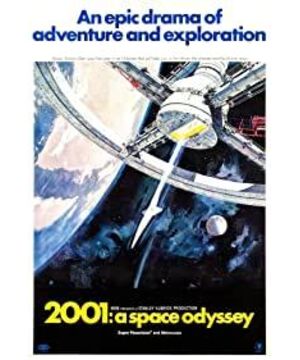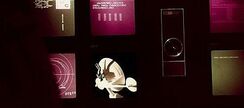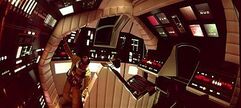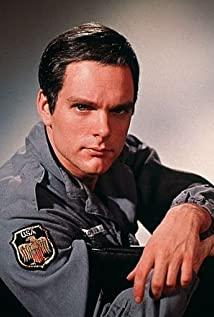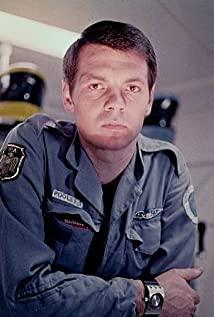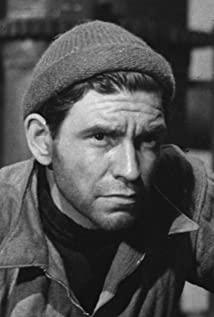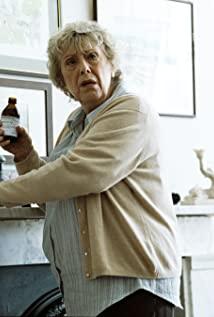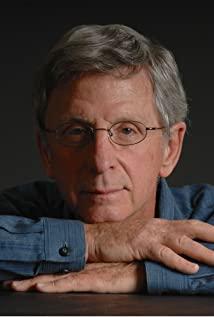For film music, it should be said that I know the field. The music itself is not bad. As far as the practical classic music is concerned, both the beginning and the vocal works in it are relatively good works in modern music. Atonal music is indeed special in expressing this kind of unknown or fearful emotions, and at the same time, it creates a considerable artistic tension with the contrast and resonance of the classics before and after. But I don't like his approach of using classic repertoire. On the one hand, it seems relatively cheap, and on the other hand, it will make some people with certain musical knowledge stand on a different level of understanding than those who lack musical knowledge - any work should be It's for the majority of the audience, not just for a few - which is essentially an unequal act. I have seen some comments that his 'thus spoke Zarathustra' throughout Strauss is connected to Nietzsche's philosophy of the superego, especially when seeing the last baby, this understanding is deepened. I'll talk about this at the end. I'll put it here first. I think this understanding is valid, but it doesn't necessarily have to be linked to the music. In fact, the film itself can explain the content, so why bring the music? The third point is still pretending to be a force. The general content is similar to the previous paragraph, so I won't repeat it again.
Back to the question of film organization. In music, we talk about motivation. In the very early classical music, motivation was not very important. In the post-classical period, the romantic period became more and more important, and in the period of impressionism and modern expressionism, it was the most important. Impressionist music tells that the motive should always float in the music, repeat, and promote the progress of the music. In other words, any part has to be meaningful, otherwise it's just a drag on the summary. There are many such problems in "2001". There is no fixed content to promote the progress of the film, and there is neither a clear climax nor a clear driving force. It gets boring. In the use of music, the director obviously understands the motivation. But I'm afraid that I don't understand it thoroughly, and I just repeat the content and point without using it as a structural driving force.
Judging from the shooting time, the film does have enlightening significance. As a result, many works were influenced by it later, and there are countless examples. For example, the GlaDOS image in the "Portal" of the Valve game has similarities with the HAL computer, and at the same time, the war between humans and machines is used to reflect the old-fashioned theme of "human nature". , is evident. The era of the movie is of great significance, but once viewed from today's perspective, the movie has little classic value. In my opinion, the theme of the film does not think of Nietzsche at first, but the simplest "Tao" - this may have something to do with the famous "reactionary" writer Ke Yunlu's "Major Master" recently. As for the issue of space, let’s talk about it first. Very interesting, from the content point of view, "Qigong Master" mentioned "the golden baby in the universe", which coincides with the end of "2001", 30 years difference, but the content is similar. I don't know if I was inspired by it, or if it's the same way. In the end, the astronaut evolved into, or the soul came out of the body, and became an infant, a "rounded baby", who was silent about Guanyin. This makes sense in Buddhism, and it can be seen that Westerners are deeply influenced by Eastern culture. The universe and the human body, this is a topic that Lao Dao has been studying since thousands of years ago. The so-called "Tai Chi gives birth to two instruments, and two instruments give birth to four images". And the movie finally seems to return to this old topic, discussing how astronauts were "born" inspired by the stone tablet. In the words of Master Ke, this is called "entering a qigong state", concentrating on one's own mind, and eventually "evolving" into a conscious body , "Heaven and earth coexist with me, and all things are one with me." Then between Xiaoyao and the universe, looking at the common people and all things above. One word, Xuan also. Sentence? "Mysterious and mysterious, the door to all wonders." However, the method adopted by the director is a relatively post-scientific reflection, rather than an over-idealistic ideology that precedes science, which is fortunate—at least he did not come up with any "principle and then Zen thinking" .
The content of the film is not difficult to understand, but the way it is very forceful and boring is why I list it as a bad film. But I have to admit that the film has written a heavy stroke on the popularization of some issues and the enlightenment of science fiction films, which is worthy of our affirmation.
View more about 2001: A Space Odyssey reviews


